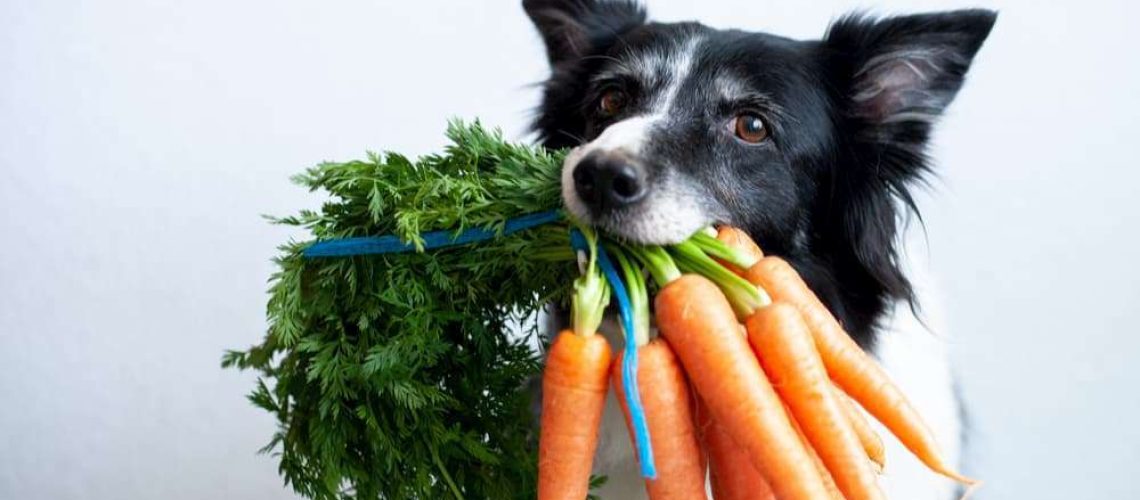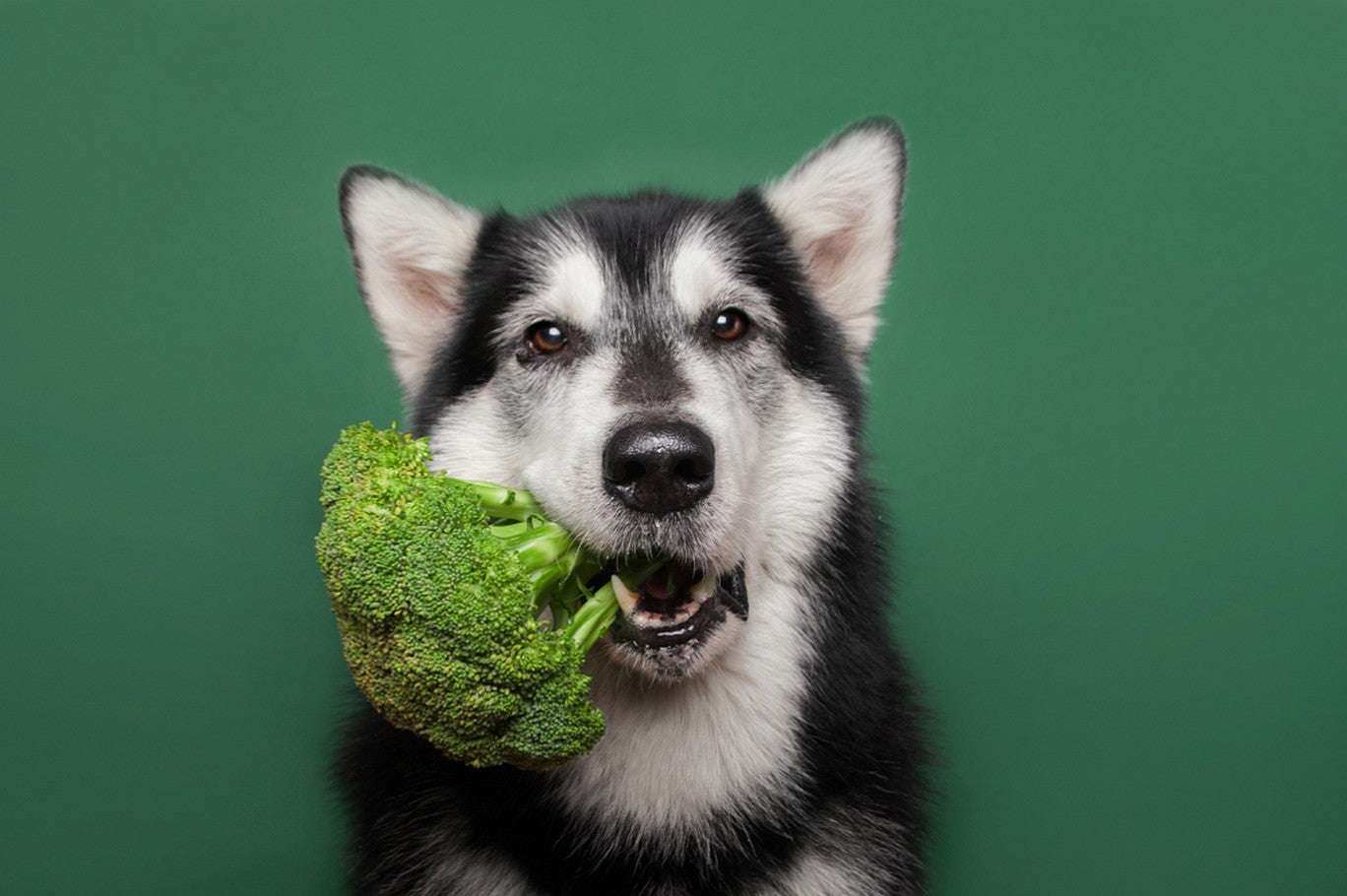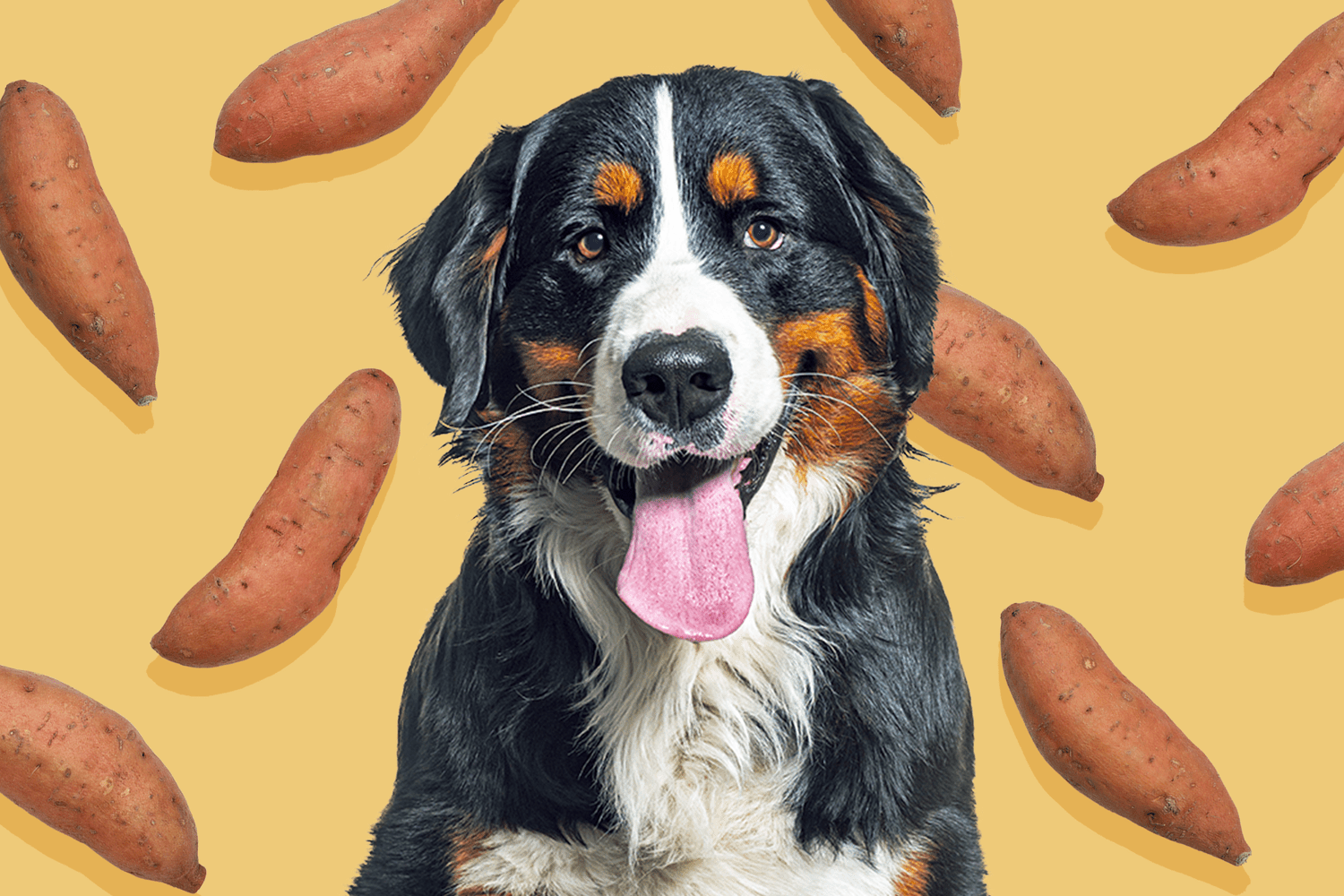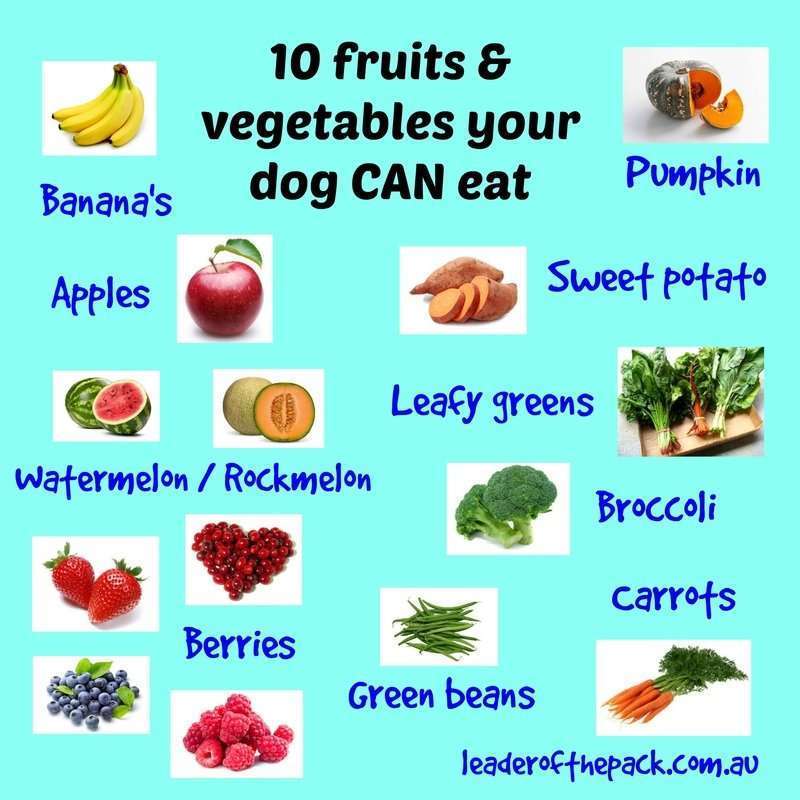Key Takeaways:
- 1. Incorporating vegetables into your dog's diet can provide essential vitamins and minerals that support overall health.
- 2. Carrots are a great choice as they are low in calories, high in fiber, and promote healthy digestion.
- 3. Sweet potatoes offer a range of benefits including antioxidants, fiber, and vitamins A and C for immune support.
- 4. Broccoli is packed with nutrients like vitamin K, which supports bone health, and fiber to aid digestion.
- 5. Green beans are a nutritious option that can help with weight management and provide important vitamins like C and K.
Are you a proud dog owner who wants to ensure your furry friend is getting the best nutrition possible? Well, look no further! In this article, we will explore the top 12 vegetables that are not only delicious but also incredibly beneficial for your canine companion. Understanding the importance of incorporating these veggies into your dog's diet can lead to improved overall health and increased longevity. So, let's dive in and discover the amazing benefits these vegetables have to offer our four-legged friends! Get ready to unleash a healthier and happier life for your beloved pup.
Best Vegetables for Dogs: Nutritious Options for Your Canine Companion
Carrots
Carrots are not only a tasty treat for dogs, but they also provide numerous health benefits. They are rich in beta-carotene, which is converted into vitamin A in the body. Vitamin A is essential for maintaining healthy vision, skin, and immune function in dogs. Carrots are also a great source of fiber, which aids digestion and promotes a healthy gut.
To incorporate carrots into your dog's diet, you can chop them into small pieces and mix them with their regular food. You can also give them whole baby carrots as a crunchy snack. Just make sure to wash the carrots thoroughly before feeding them to your dog.
Sweet Potatoes
Sweet potatoes are another excellent vegetable option for dogs. They are packed with nutrients like vitamins A and C, fiber, and antioxidants. These nutrients support your dog's immune system and promote overall health.
You can prepare sweet potatoes for your dog by baking or boiling them until they are soft. Then, mash or dice the sweet potatoes and mix them with your dog's regular food. It's important to avoid adding any seasonings or spices that may be harmful to your pet.
List of Best Vegetables for Dogs:
- Carrots
- Sweet Potatoes
- Green Beans
- Pumpkin
- Broccoli
- Cucumbers
- Zucchini
- Peas
The Importance of Vegetables in a Dog's Diet: Why They're Essential for Your Pet's Health
Vegetables play a crucial role in a dog's diet as they provide essential nutrients that contribute to their overall health and well-being. While dogs are primarily carnivorous, incorporating vegetables into their diet can offer numerous benefits.
Firstly, vegetables are a great source of vitamins and minerals that support various bodily functions. For example, vitamin A promotes healthy vision, vitamin C boosts the immune system, and fiber aids digestion. These nutrients help keep your dog healthy and prevent deficiencies.
Secondly, vegetables can be an excellent source of hydration for dogs. Many vegetables have high water content, which helps keep your dog hydrated, especially during hot weather or physical activity.
Lastly, vegetables can serve as low-calorie alternatives to treats. If your dog needs to lose weight or maintain a healthy weight, replacing high-calorie treats with vegetable snacks can help them achieve and maintain their ideal weight.
Dogs and Vegetables: Which Ones Are Safe and Healthy for Your Furry Friend?
Understanding the Benefits of Vegetables for Dogs
Vegetables can be a valuable addition to your dog's diet, providing essential nutrients and promoting overall health. They are packed with vitamins, minerals, and fiber that support digestion, boost the immune system, and maintain a healthy weight. Some vegetables also contain antioxidants that help prevent cell damage and reduce the risk of chronic diseases in dogs. However, it is important to know which vegetables are safe and beneficial for your furry friend.
Safe and Healthy Vegetables for Dogs
When it comes to feeding vegetables to your dog, there are several options that are both safe and healthy. Carrots are an excellent choice as they are low in calories and high in vitamin A, which promotes good vision. Green beans provide fiber and vitamins C and K. Sweet potatoes offer a great source of dietary fiber, vitamin B6, potassium, and beta-carotene. Broccoli is another nutritious option that contains vitamins C and K as well as fiber. These vegetables can be served raw or cooked but should always be cut into small pieces to prevent choking hazards.
Recommended Vegetables:
- Carrots
- Green beans
- Sweet potatoes
- Broccoli
Introducing Vegetables to Your Dog's Diet: Tips for a Smooth Transition
The Importance of a Gradual Transition
When introducing vegetables into your dog's diet, it is crucial to do so gradually. Abrupt changes can upset their stomachs and lead to digestive issues. Start by mixing a small amount of finely chopped or pureed vegetables with their regular food. Over time, gradually increase the proportion of vegetables while reducing the amount of regular food until your dog is comfortably consuming a balanced diet.
Making Vegetables More Appealing to Your Dog
Some dogs may be hesitant to try vegetables initially. To make them more appealing, you can lightly cook the vegetables or mix them with a small amount of lean protein, such as chicken or turkey. You can also try freezing small pieces of vegetables as a refreshing treat during hot weather. Remember to avoid adding any seasonings, spices, or oils that could be harmful to your dog's health.
Tips for a Smooth Transition:
- Introduce vegetables gradually
- Mix vegetables with regular food
- Cook vegetables lightly if needed
- Add lean protein for added appeal
- Freeze small vegetable pieces as treats
Vegetables to Avoid Feeding Your Dog: Know What Not to Give to Your Canine Companion
Potentially Harmful Vegetables for Dogs
While many vegetables are safe and beneficial for dogs, there are some that should be avoided due to potential health risks. Onions and garlic, for example, contain compounds that can damage a dog's red blood cells and lead to anemia. Avocados contain persin, which can cause vomiting and diarrhea in dogs. Grapes and raisins are known to be toxic and can cause kidney failure in some dogs. It is important to familiarize yourself with these potentially harmful vegetables and ensure they are kept out of your dog's reach.
List of Vegetables to Avoid:
- Onions
- Garlic
- Avocados
- Grapes
- Raisins
The Health Benefits of Feeding Vegetables to Dogs: How They Can Improve Your Pet's Well-being
Promoting Digestive Health
Including vegetables in your dog's diet can have a positive impact on their digestive system. The fiber content in vegetables helps regulate bowel movements and prevents constipation. It also promotes the growth of beneficial gut bacteria, which aids in digestion and nutrient absorption.
Supporting Weight Management
Obesity is a common issue among dogs, leading to various health problems. Vegetables are low in calories and high in fiber, making them an excellent addition to a weight management plan for your furry friend. They provide a feeling of fullness without adding excessive calories, helping your dog maintain a healthy weight.
Boosting Immune Function
The vitamins and antioxidants found in vegetables can strengthen your dog's immune system, reducing the risk of illnesses and infections. These nutrients help protect cells from damage caused by free radicals, supporting overall health and well-being.
Key Health Benefits:
- Improved digestive health
- Weight management support
- Enhanced immune function
Feeding Vegetables to Your Dog: Finding the Right Portion Size and Frequency
Determining the Ideal Portion Size
The appropriate portion size of vegetables for your dog depends on their size, age, and overall health. As a general guideline, vegetables should make up no more than 10% of their total daily caloric intake. It is important to consult with your veterinarian to determine the specific portion size that suits your dog's individual needs.
Frequency of Vegetable Feeding
Feeding vegetables to your dog should be done in moderation. While they offer numerous benefits, they should not replace a balanced diet that includes high-quality commercial dog food or veterinarian-recommended homemade meals. Aim to incorporate vegetables into your dog's diet 2-3 times per week as part of a varied and nutritious meal plan.
Tips for Portion Control:
- Limit vegetable portion to 10% of daily caloric intake
- Consult with a veterinarian for specific portion size recommendations
Tips for Frequency:
- Incorporate vegetables 2-3 times per week
- Do not replace balanced diet with vegetables alone
In conclusion, feeding vegetables to dogs can be a healthy and beneficial addition to their diet. Some of the best vegetables for dogs include carrots, broccoli, and sweet potatoes. However, it's important to consult with a veterinarian before introducing any new food to your furry friend's diet.
https://www.youtube.com/watch?v=Vsj_amg0v_g&pp=ygUiMTIgb2YgdGhlIEJlc3QgVmVnZXRhYmxlcyBmb3IgRG9ncw%3D%3D
What is the best vegetable to put in homemade dog food?
In addition, vegetables serve as excellent options for low-fat and nutritious additions to meals for dogs on weight loss programs. Certain vegetables that are particularly enjoyed by dogs are carrots, green beans, peas, and cucumber.
What vegetables should dogs eat daily?
Carrots, peas, green beans, sweet potatoes, and bananas contain essential vitamins and potassium that are beneficial for a dog's muscles, nerves, and kidneys. The fiber in these foods can also aid in maintaining regular bowel movements for dogs.
What are the 3 super foods for dogs?
The experts at Years.com specializing in dog nutrition have compiled a list of nutrient-rich foods that can contribute to dogs living a healthier life. This list includes vegetables such as sweet potato, kale, and carrots, as well as grains and seeds like quinoa and chia seeds.
What should top 3 ingredients be dog food?
Which are the most important ingredients to consider when choosing dog food? The key ingredients to look for in dog food include proteins of high quality (such as chicken, beef, fish, and lamb), natural carbohydrates (whole fruits and vegetables), and healthy fats (either animal fats or plant-based oils).
What vegetables should dogs not have?
Garlic, onions, shallots, and chives are vegetables that are harmful to dogs, whether they are consumed raw or cooked. These vegetables contain substances that can lead to anemia and damage red blood cells in dogs. Symptoms of illness may take a few days to appear. (source: Jan 15, 2023)
Can I feed my dog rice and veggies everyday?
Certainly, dogs are capable of eating rice. In fact, rice is often included as an ingredient in commercially available dog food. However, it is important to note that feeding your dog only rice on a regular basis is not advisable. Rice should be incorporated as part of a diverse diet that provides all the necessary nutrients for your dog's wellbeing.

















